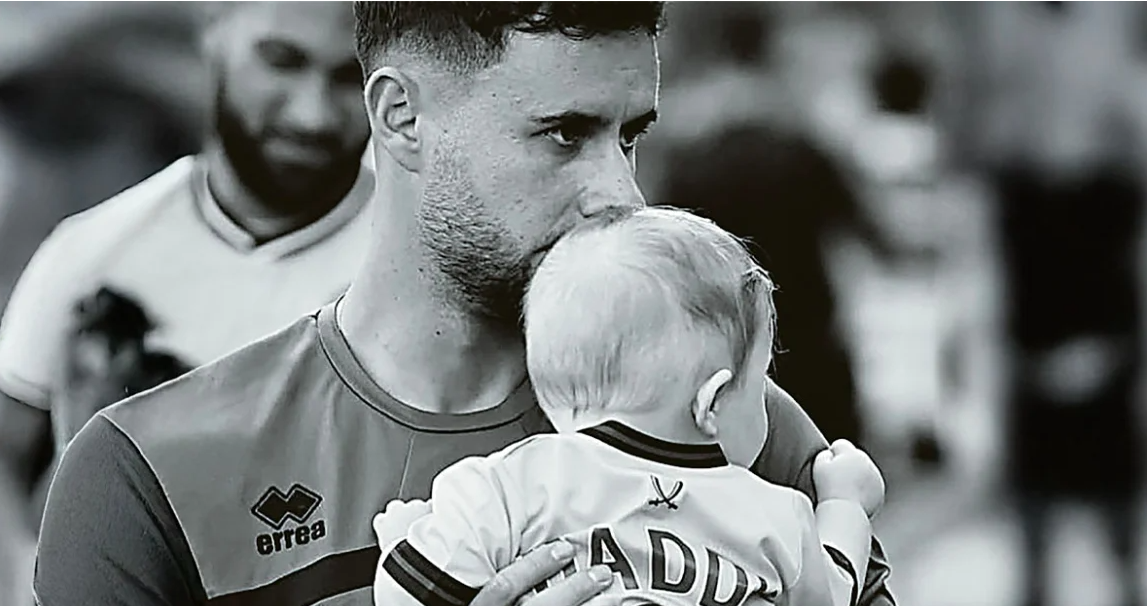It was a deeply moving moment as the players observed a minute’s silence for their late teammate, George Baldock. The sight of the Greek national team donning black armbands added an emotional weight to the occasion, serving as a powerful tribute to a fellow athlete who left an indelible mark on their hearts. This poignant gesture was not only a recognition of their remarkable victory over England at Wembley but also an homage to Baldock—a tenacious fighter both on the field and in life. In essence, it was a reminder that “honors to the dead adorn the living,” echoing through the cheers of fans and the camaraderie of teammates.
The untimely passing of the 31-year-old footballer is a stark reminder of the fragility of life beneath the glimmering surface of professional football. This glamorous world, often bathed in the light of stardom, can quickly turn shadowy. The realities of physical strain and the personal struggles of athletes are frequently overshadowed by the spectacle of their talent. The tragic death of Baldock, who drowned in the pool of his home, serves as a haunting juxtaposition to the dreams and aspirations surrounding the sport.

Baldock’s death does not fall into the grim categories we often associate with tragedies in football: he did not collapse on the pitch, nor was he a victim of a tragic accident. Instead, he met his end quietly, alone—a shocking reminder of how suddenly life can change. His fate recalls the tragic losses of other young athletes, such as Fiorentina’s Davide Astori and Espanyol’s Dani Harque, whose unexpected departures left their teams and loved ones in profound sorrow.

What makes Baldock’s story particularly poignant is that, unlike many who struggle with the pressures of fame and success, he seemed to embody the ideal life of a professional footballer: a successful career, a loving family, and a burgeoning fortune estimated at over €7.3 million. Just this year, he signed a lucrative deal with Panathinaikos, potentially earning him a million euros annually—a testament to his dedication and skill on the pitch. Despite his wealth and success, Baldock remained approachable and grounded, actively engaging in charitable causes and supporting vulnerable communities.

Yet, as with so many in the limelight, the unseen struggles often remain hidden. While Baldock appeared to lead a charmed life, the truth of mental health challenges in professional sports cannot be overlooked. His unexpected passing invites a larger conversation about the pressures athletes face, regardless of their outward success.
As we remember George Baldock, let us honor not just his achievements but also the reminder of our shared humanity. His legacy serves as a testament to the joys and sorrows of life—beautifully intricate, yet often painfully fragile. For more insights into his life and legacy, check out coverage from various sources.


Ask me anything
Explore related questions





